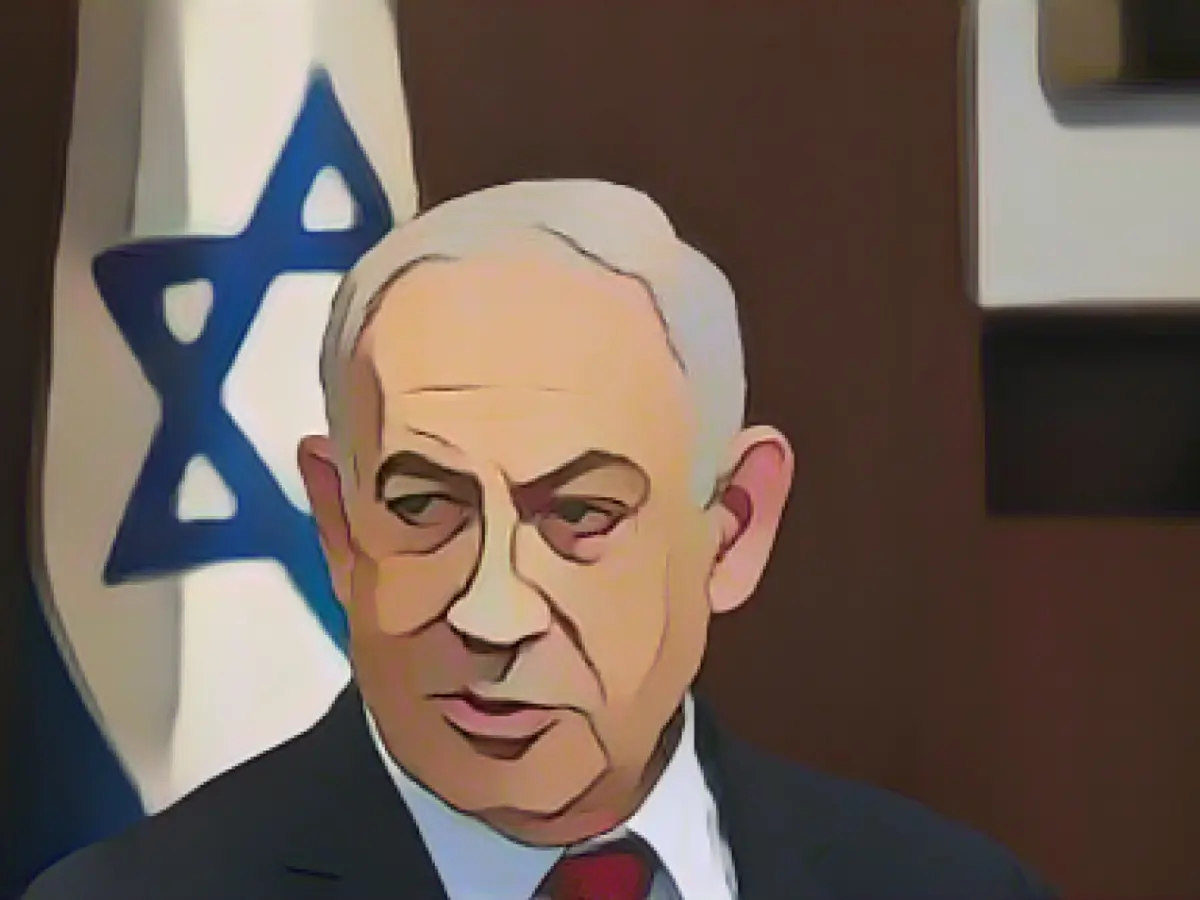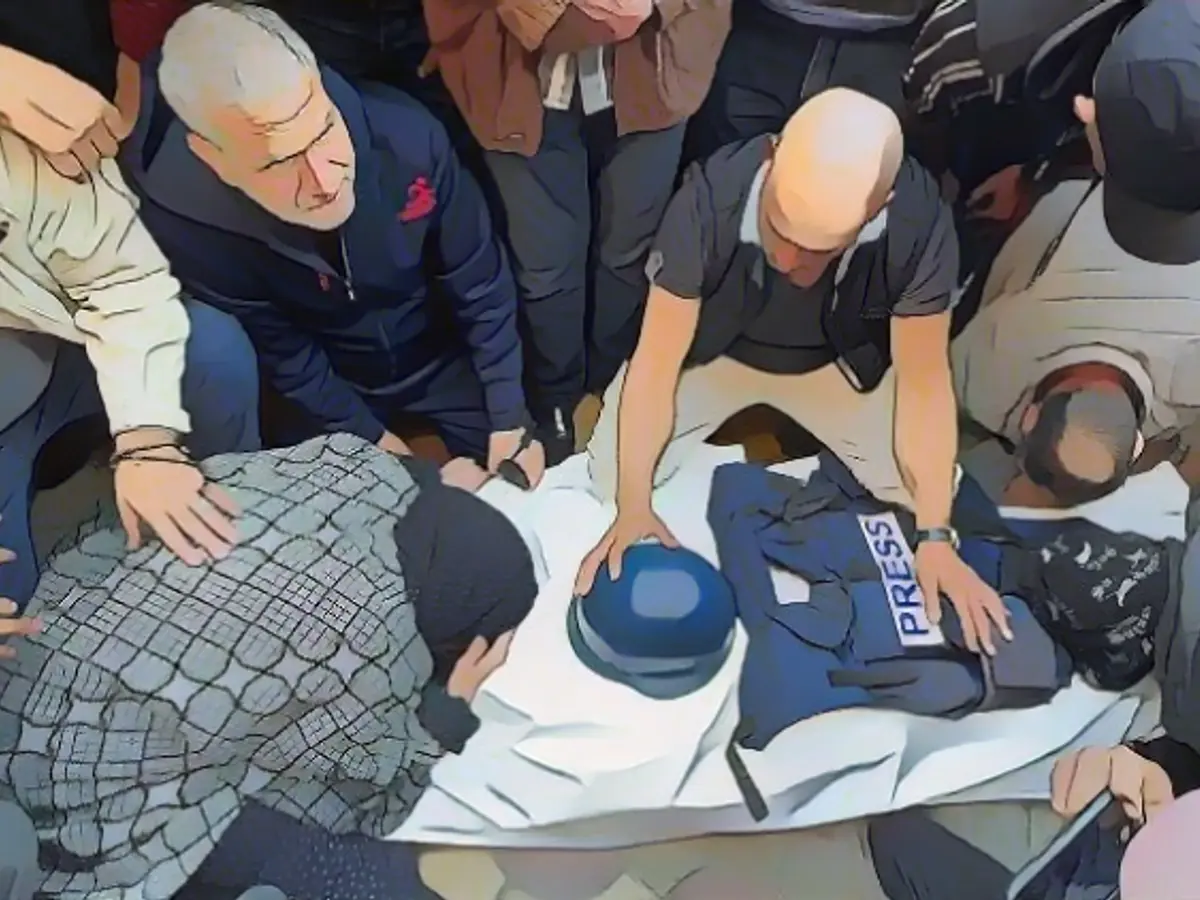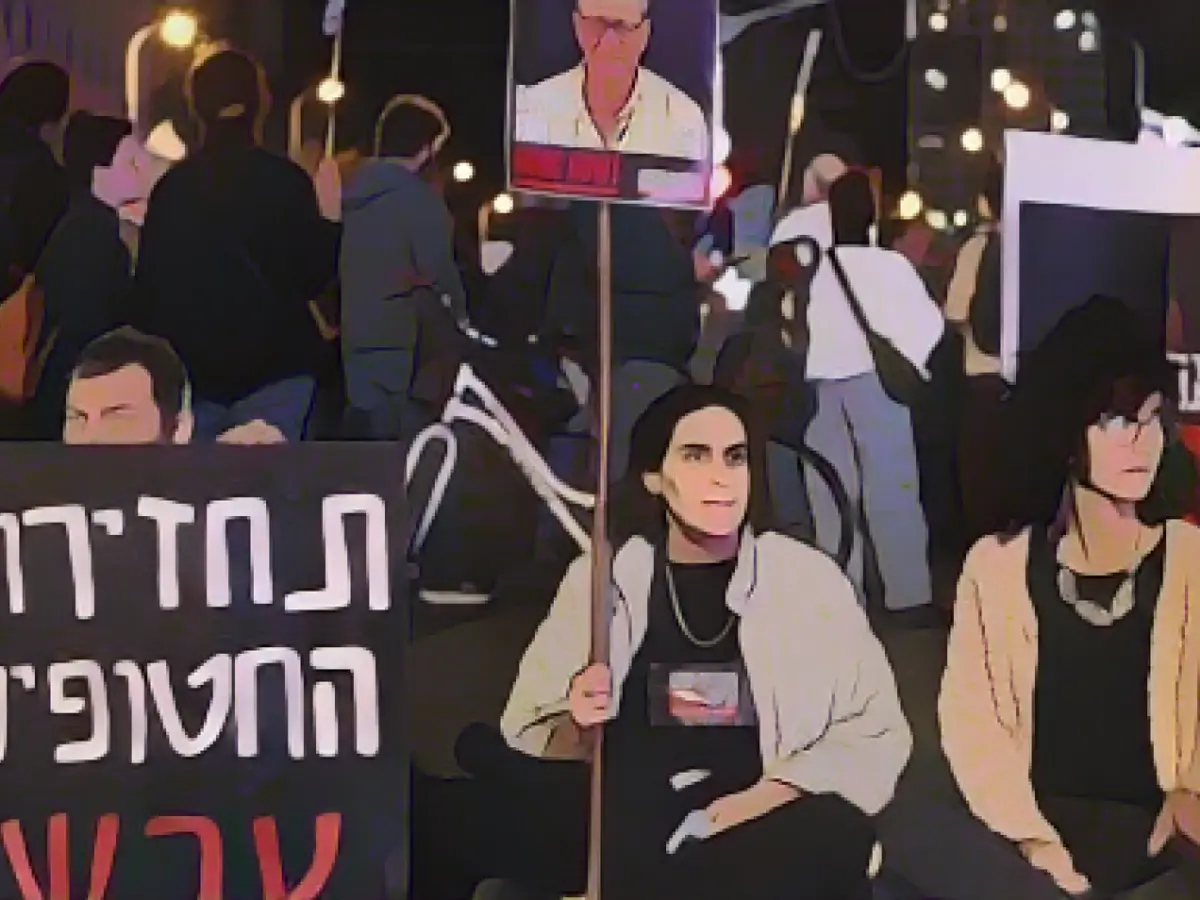Israel at War: Hamas Confrontation Continues Amidst Controversy
As the dust settles following the accidental killing of three Israeli hostages by their own soldiers in Gaza, the Israeli government remains committed to its war against the Islamist group Hamas. Prime Minister Benjamin Netanyahu made it clear that military pressure on Hamas must be maintained until they are defeated and all abducted hostages are returned.
Protests in Tel Aviv
Following the release of hostages and the tragic loss of three others, hundreds of supporters demonstrated in Tel Aviv on Saturday evening. They demanded the release of those still being held in Gaza and accused Netanyahu's war cabinet of prioritizing military pressure over hostage releases.
Responsibility and Vow to Prevent Future Incidents
Israel's Chief of Staff, Herzi Halevi, adopted responsibility for the accidental killing of the three Israeli hostages. In a video statement, he promised to do everything to prevent such events from happening again in the future. Halevi emphasized that the army and he, as its commander, were responsible for what transpired during the course of the conflict.
Communication Breakdown and Trust Issues
The failure of the Israeli soldiers to communicate the presence of hostages near their position, along with allegations of sniper fire from Palestinian militants, led to a catastrophic misunderstanding. Despite concerns, Israel will continue its military campaign until all hostages are returned and Hamas is defeated.
A Grim Toll for Palestinians
Despite the temporary ceasefire, the Palestinian civilian population in Gaza continues to suffer. The largest hospital in the area, Shifa, has only resumed limited services due to the destruction caused by the fighting. The hospital remains in dire need of supplies and personnel to provide basic medical care to the community.
International Calls for Aid and Restraint
U.S. President Joe Biden has called on Israel to exercise greater consideration for civilians in the region. Concurrently, the United Nations has urged all parties to abide by international humanitarian law and protect civilians. Middle Eastern governments have also expressed solidarity with Palestinians, while recognizing the need for Israel's security.
Future Challenges and Conditions
The Israel-Gaza conflict has entered its third week, with no end in sight. The critical issues at hand include protecting civilians, resolving hostage situations, and addressing the ongoing tensions between Israel and Hamas. As the conflict drags on, both sides will be required to engage in concrete negotiations to restore stability to the region.
Content Sources:
Enrichment Data (Optional, up to 15% of content)
Confirmation of Legitimate Acts
In the face of widespread allegations of targeting civilians and journalists, Israel has provided evidence to support its claims of legitimate acts. The state has released footage and images of weapons and munitions found in civilian homes, along with footage of militants opening fire on Israeli soldiers from within hospitals and residential areas. These incidents have added to concerns that Hamas continues to misuse civilians as shields and propaganda tools.
Escalating International Representation
- The European Union has called for an urgent end to the violence and a resumption of negotiations.
- The United Nations Security Council met to discuss the situation in the Middle East, following a request from Egypt. The meeting emphasized the need for all parties to adhere to international law.
- Russia has critiqued Israel's military campaign while insisting that Hamas bears responsibility for the escalation of the conflict.
Humanitarian Concerns
The United Nations has communicated that over 58,000 Palestinians have been displaced and are now living in UN-run shelters and host families. Only 35% of all Gaza water and wastewater facilities are operating following recent attacks. The Israeli blockade has further exacerbated the situation, with the World Food Programme warning that food and water shortages may lead to ongoing malnutrition and undersnourishment.
Enrichment Data is integrated into the revised text to provide context and background information, ensuring that critical details are presented for a complete perspective on the conflict.






